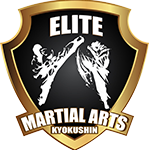“Always be ready, Maya!” she shouted. This was senpai A, the teacher of my daughter Maya (then 8Y), rushing past us as we were walking down Richmond High Street, making our way home from kids’ karate at the Olympus Gym. Maya and I were discussing afterwards how exactly to do this, were we supposed to walk home with our guards up, ready in case someone would throw a high kick?
Eight months earlier I had found myself in a hospital room waiting for Dr B to deliver his assessment of a colonoscopy he had just performed on me. Although I had some fears, I am not sure I was ready for what was to come next. For some time, I had had an increasing pain in my behind. I thought maybe I am just an old man (51Y) with haemorrhoids or something but as Dr B came in, his grim face suggested otherwise; “we need the biopsy results to be 100% sure but I have seen this before and have no doubts, you have a tumour in your rectum”.
Failure is not falling down
But refusing to get up
Never give up
Kyokushin spirit
(Banner in the Olympus Gym)
Karate teaches us many things, how to punch and kick well for instance, but perhaps more importantly it teaches us life skills like persistence, resilience, fighting spirit, and to be ready for the unexpected (“always be ready”). These skills are important for being successful not just in karate but in many of the challenges life brings; education, careers, relationships and, indeed, in coping with adversity like cancer.
But karate was not part of my life yet as this was happening, I had done full-contact karate 15 years earlier but it was very far from my mind to do so again. A couple of days later I was with Dr L, my oncologist; the verdict was clear and we were going through implications and next steps. This was January 2021 and would set the agenda for the rest of the year and beyond for me.
A cancer diagnosis is a pretty bad knock-down – I had stage 3 rectal cancer, a tumour the size of a squeezed golf ball up my behind. There are 4 stages, you don’t want to get to stage 4, this means it has spread around the body and survival rates are very low. Stage 3 has an official survival probability of 65% but Dr L cheerfully informed me that for me it was probably more like 80-85%. This might sound great to an oncologist but think about it, 85% is like playing Russian roulette, no sane person would volunteer for that risk. To achieve that though you first need a little detour through hell; 12 weeks of chemotherapy followed by radio- and chemo-therapy for 5.5 weeks and then another 12 weeks of chemotherapy again. This to contain and reduce the cancer, most likely not cure it, which would require surgically removing the rectum and leaving you with a stoma (a colostomy bag on the side for going to the toilet).
Chemotherapy has a long list of unpleasant side effects – common is sickness, lack of appetite, blisters in your mouth, diarrhoea and constipation, reduced immune system function, anaemia, neuropathy (pins and needles in limbs, extreme cold sensitivity eg. needing to wear gloves to take things out of the fridge), and fatigue. For some, these effects go on long after treatment ends. Radiotherapy is less severe but consists of daily doses of x-rays concentrated on the tumour. Essentially you get a bad sunburn on the inside.
So how do you handle this? Everyone is different but I think the Kyokushin ethos is a good starting point. Being ready doesn’t mean having your guards up, literally or figuratively, as Maya and I were joking that day on Richmond High Street. It means having the mental strength to rise to the challenge. It is easy to feel a victim; why me, this is unfair, feeling sorry for yourself, and so on. Don’t! Get into the fight. Never give up.
People think cancer patients should take it easy and rest. They absolutely shouldn’t, it is important to stay active, be as engaged as possible in work and normal life for mental health, and be as physically active as possible. I am convinced this helps manage the bad side effects and speeds up recovery. The best cure for fatigue is not to rest, but to train hard (although in fairness there might be cases where this is impossible).
I was lucky, given the circumstance, I had none of the side effects apart for some occasional tiredness, reduced cardio performance and once an 8-hour bout of hiccups. The initial chemotherapy reduced my tumour and the corresponding pain so I could walk and do a little bit of work. After a while I was back to rock climbing and running.
During the summer Maya kept bugging me about finding karate classes for her, she had been doing something called karate (which probably wasn’t) when in nursery and wanted to do so again. I was keen to find a place where I could then in theory also start karate, although it was pretty clear in my mind that if at all, then this was to obviously wait until my cancer was cured and I had a chance to get into significantly better shape, say mid-2022. And then I found Sensei Simeon. Watching Maya’s trial class was very motivating and knowing Simeon you will probably not be surprised that he tried to convince me that there is no problem in a middle-aged person on chemotherapy starting karate. I am so happy he did, he has been incredibly supportive throughout this period.
“Karate is life”; I stole and paraphrased that from Ted Lasso (a TV show on Apple TV+, filmed in Richmond and well worth watching). In this show an enthusiastic Danny Rojas, a Mexican playing for AFC Richmond, always shouts “Football is life” (think Sensei Simeon on steroids). Karate is life because it teaches us valuable life skills (possibly football does too) but it also became an important part of my life. Doing karate on chemotherapy was hard but also incredibly rewarding, and I believe physically and mentally very helpful and good for me. There were days when I didn’t come to the dojo because the drugs made me very tired, and many more days when I came, was tired and unsure about whether I did the right thing, but felt so much better after the session. Gaining my red belt during this period is an achievement I will be forever proud of, not because it is a hard belt by any means but in many ways, it has become symbolic of my fight against cancer.
And I won the first round of that fight! With cancer you don’t ever know how many rounds there are, but I got through the treatment without it being too bad. In December 2021 I finished the treatment, the tumour had vanished and I managed to avoid surgery (so no stoma).
Karate is also life because we have a great dojo, a great and supportive team and Sensei, and a real sense of community.
Round 2; a setback came in March, lymph nodes in my groin area (close to the primary tumour had been) had been infected by the cancer. They had to be removed and surgery to that effect was done. According to my surgeon, it was less likely I would be able to do the grading in June. Also, I was supposed to get lymphedema (fluid retention and a swollen leg) – I feared for my karate “career”. I was determined to fight this and trained hard with Sensei – when I couldn’t use my leg we just focused on upper body (which, in any case, was in need of some work). As luck would have it, my surgeon was too conservative; no sign of any swollen leg (quite possibly training karate 4-5 times a week helps the lymphatic fluid flow), I recovered fast, was able to train, grade and gain my blue belt – another symbolic victory!
Round 3; I thought I had won the “tournament” and was very disappointed when my opponent came back alive, in a lymph node region adjacent to the previously infected ones. I got the confirmation on the second day of the grading, two hours before having to do my kata. It did my kata no good of course but we all have stresses in our life – not to mention 50 people and a stern looking Sensei staring at you – and part of karate is to be able to keep your head cool and perform under pressure (I don’t think I did that well but I passed and it was a learning experience).
I am now 7 rounds into a 12 round (6 months) chemo therapy programme to deal with the latest metastatic cancer occurrence. I am feeling physically much better than during chemo last year, although I do occasionally feel the poisoning – I credit this to a large extent to being much fitter and more active, driven by karate training, in the dojo, and in individual sessions with Sensei Simeon. I really feel Kyokushin karate has a major impact on my wellbeing and my ability to cope with cancer treatment – the fighting mindset, the hard training sessions, the support and the team spirit is exactly what I need!
I remain hopeful this will be the last such fight, but not the last belt, but as a cancer survivor you cannot know and need to be ever vigilant – just like in the rest of life, you never know what comes next, so “always be ready”.
Karate is Life!
OSU!!!


